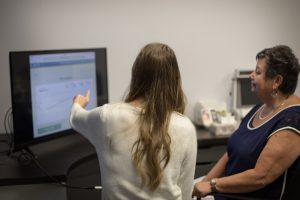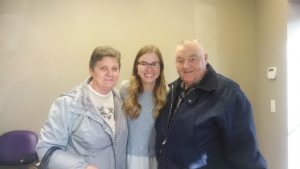I am amazed by the amount of people who tell me that they were tested by an audiologist, but in reality they were tested by the office secretary, the physicians wife, or even the janitor. You may think I’m joking, but unfortunately I’m not. The next time you see your audiologist, ask them about this and I guarantee you that they will tell you something along the same lines.
I’m not going to bash any other profession, but I do think that patients need to know who they are seeing. Obviously, I am biased: if you ask me EVERYONE should see an audiologist.
When getting a hearing test, you may encounter one of the following three different professionals:
Ear, Nose and Throat Doctor:
Also known as E.N.T. or an Otolaryngologist, this is a surgeon. E.N.T.s are medical doctors. Surgeons do surgery, and prescribe medications. Often, family doctors will refer patient’s who complain of hearing loss to these surgeons. Personally, I believe that this is often a waste of a medical referral. Especially during the cold months when children with chronic ear infections have to wait months before getting an appointment. Just my two cents.
Audiologists:
What can I say, Audiologists are awesome. I just wish the general population knew who we were. When I tell people what I do, people think I work with stereo equipment. If you are one of those people, don’t be ashamed. I went to visit a local family doctor and he had NO CLUE what I did. I wish I was joking, but I am not.
Now you really want to know what an Audiologists do. Audiologist have a Masters or Doctorate level degree in Audiology. After completing undergrad, we complete three to five years of advanced education. Simply put, we diagnose and treat hearing and balance disorders. DISCLAIMER: Ohh wait… in Ontario we don’t diagnose (I will save that for a later rant). When you see an Audiologist we will measure you hearing, similar to how an Optometrist (Eye Doctor) measures your visual acuity. An Audiologist will prescribe hearing aids, similar to how an Optometrist will prescribe glasses. We also see patients with balance disorders, tinnitus (ringing/sounds in the ear), and central auditory processing disorders.
Hearing Aid Dispenser:
If you had a “free hearing test”, you most likely saw a hearing aid dispenser. I hate to use the eye example again but think of them in the same light as an optician. Opticians can dispense (or teach you) how to use your glasses (and possibly contact lenses, I’m not sure about that), hearing aid dispensers are supposed to dispense hearing aids BUT there is a loophole in our Ontario Healthcare system that allows them to “suggest” hearing aids (this will be a topic of a later rant). Dispensers are non-regulated health care providers who have a college level diploma.
As I said before, I am biased towards Audiologists. I hope I haven’t confused you. If you, or a loved one, have a hearing loss it would be in your best interest to be evaluated by an Audiologist. Book an appointment to see an Audiologist today!

 People are shocked when I tell them that their hearing aids are not going to solve all of their listening problems. Hearing aids give you back the sounds that you’ve been missing, but they do not train your brain to hear, especially in noisy situations. I recommend that my patient’s complete rehabilitation when they get hearing aids or a cochlear implant. When you break a leg, you often go to therapy with physiotherapy to regain function. Function will never be 100%, but if you want the best outcome therapy will increase your function. The same can be said for your hearing. You will never hear 100%, but the therapy will improve how you function in quiet and noisy situations.
People are shocked when I tell them that their hearing aids are not going to solve all of their listening problems. Hearing aids give you back the sounds that you’ve been missing, but they do not train your brain to hear, especially in noisy situations. I recommend that my patient’s complete rehabilitation when they get hearing aids or a cochlear implant. When you break a leg, you often go to therapy with physiotherapy to regain function. Function will never be 100%, but if you want the best outcome therapy will increase your function. The same can be said for your hearing. You will never hear 100%, but the therapy will improve how you function in quiet and noisy situations.
 Every year, we select one or two deserving patients, and our Doctor of Audiology personally pays for their hearing aids.
Every year, we select one or two deserving patients, and our Doctor of Audiology personally pays for their hearing aids. 
